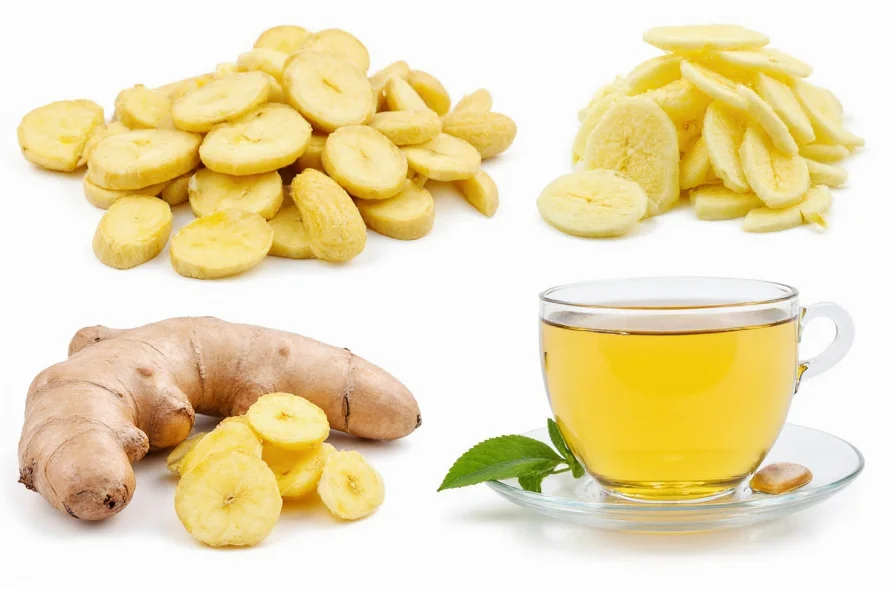For centuries, fresh ginger root has been valued in traditional medicine systems worldwide. Modern science now confirms many of these traditional uses, revealing specific mechanisms behind the health benefits of fresh ginger root. Unlike powdered or dried ginger, fresh ginger contains higher concentrations of gingerol, the primary bioactive compound responsible for its therapeutic effects.
What Makes Fresh Ginger Unique
Ginger (Zingiber officinale) belongs to the same plant family as turmeric and cardamom. The fresh rhizome (often called ginger root) contains over 400 distinct chemical compounds. When harvested fresh, it maintains maximum levels of gingerol, which transforms into shogaol when dried or heated. Research published in the Journal of Agricultural and Food Chemistry confirms fresh ginger contains approximately 3-4% gingerol by weight, significantly higher than dried forms.

Science-Backed Benefits of Fresh Ginger
Nausea and Vomiting Relief
Multiple clinical studies validate fresh ginger for nausea relief across various conditions. A systematic review in Obstetrics & Gynecology found that 1 gram of fresh ginger daily significantly reduced pregnancy-related nausea. Cancer patients undergoing chemotherapy experienced 40% less nausea when consuming fresh ginger supplements according to research in Supportive Care in Cancer. The mechanism involves gingerol's interaction with serotonin receptors in the digestive tract.
Anti-Inflammatory Properties
The anti-inflammatory properties of fresh ginger make it valuable for chronic inflammatory conditions. A study in Arthritis demonstrated that 500-1000 mg of fresh ginger extract daily reduced osteoarthritis pain by 30% compared to placebo. Gingerol inhibits key inflammatory pathways including COX-2 and 5-LOX enzymes, similar to NSAIDs but without the gastrointestinal side effects.
| Condition | Effective Dosage | Study Duration | Reported Improvement |
|---|---|---|---|
| Morning sickness | 1g daily | 2-4 weeks | 25-40% reduction in symptoms |
| Osteoarthritis | 500mg-1g daily | 12 weeks | 30% pain reduction |
| Menstrual pain | 750mg-2g daily | 3-5 days | 50% pain reduction |
| Post-exercise muscle pain | 2g daily | 11 days | 25% faster recovery |
Digestive Health Enhancement
How to use fresh ginger for digestion effectively involves consuming it before meals. Research in World Journal of Gastroenterology shows fresh ginger accelerates gastric emptying by 25%, reducing bloating and indigestion. It stimulates digestive enzyme production while relaxing intestinal muscles, making it particularly helpful for functional dyspepsia. Unlike dried ginger, fresh ginger contains active zingibain, a proteolytic enzyme that aids protein digestion.
Pain Management Applications
For fresh ginger for pain relief, studies indicate effectiveness for both acute and chronic pain. A clinical trial in Journal of Pain found that daily consumption of 2 grams of fresh ginger reduced muscle pain from exercise by 25%. Women with primary dysmenorrhea experienced significant pain reduction when consuming 750mg-2g of fresh ginger during menstruation, according to research in Journal of Alternative and Complementary Medicine.
Fresh Ginger vs. Other Forms: Understanding the Differences
Understanding fresh ginger vs dried ginger benefits is crucial for maximizing therapeutic effects. Fresh ginger contains higher levels of gingerol (the compound with strongest anti-nausea effects), while dried ginger has more shogaol (which has stronger anti-inflammatory properties). However, fresh ginger offers more complete nutritional profile:
- Enzyme content: Fresh ginger contains active zingibain (a digestive enzyme destroyed during drying)
- Vitamin C: Fresh ginger retains vitamin C, which degrades during drying
- Hydration: Fresh ginger's water content aids absorption of active compounds
- Flavor profile: Fresh ginger offers brighter, more complex flavor with less bitterness
Practical Ways to Incorporate Fresh Ginger
To maximize the scientific evidence for ginger health benefits, consider these preparation methods:
- Raw consumption: Grate 1-2 teaspoons into smoothies or salads (preserves maximum gingerol)
- Fresh ginger tea: Steep 1-inch sliced ginger in hot water for 10 minutes (enhances bioavailability)
- Culinary uses: Add to stir-fries, marinades, or salad dressings during final cooking stages
- Pickled ginger: Preserves some benefits while adding probiotic advantages

Safety Considerations and Potential Interactions
Fresh ginger is generally safe at culinary doses (up to 4 grams daily). Higher therapeutic doses (1-1.5 grams) may cause mild heartburn or mouth irritation in sensitive individuals. Important considerations include:
- Blood thinning: Ginger may enhance effects of anticoagulants like warfarin
- Blood sugar: May lower blood sugar, requiring monitoring for diabetics
- Pregnancy: Generally safe for morning sickness but consult doctor before regular use
- Gallstones: May increase bile production, potentially problematic for those with gallstones
Conclusion: Maximizing Ginger's Therapeutic Potential
The natural remedies with fresh ginger offer evidence-based solutions for multiple health concerns when used appropriately. For optimal benefits, choose fresh, firm rhizomes with smooth skin, store them in the refrigerator for up to three weeks, and consume them raw or minimally processed. While not a replacement for medical treatment, fresh ginger serves as a valuable complementary approach for managing nausea, inflammation, and digestive issues based on substantial scientific evidence.
Frequently Asked Questions
How much fresh ginger should I consume daily for health benefits?
For general health benefits, 1-1.5 grams of fresh ginger daily provides therapeutic effects without side effects for most adults. This equals approximately 1/4 to 1/2 teaspoon of grated ginger. Higher doses up to 4 grams may be used temporarily for specific conditions like nausea, but consult your healthcare provider for extended use at these levels.
Can fresh ginger help with morning sickness during pregnancy?
Yes, multiple clinical studies confirm that 1 gram of fresh ginger daily significantly reduces pregnancy-related nausea and vomiting. A systematic review in Obstetrics & Gynecology found ginger effective with minimal side effects. However, pregnant women should consult their healthcare provider before regular use, especially if experiencing severe morning sickness or having pregnancy complications.
What's the difference between fresh ginger and ginger supplements?
Fresh ginger contains the complete spectrum of ginger's natural compounds, including enzymes destroyed during processing. Supplements often standardize to specific compounds like gingerols but may lack the synergistic effects of the whole root. Research suggests fresh ginger may provide more comprehensive benefits, though supplements offer consistent dosing. For nausea relief, fresh ginger appears more effective than standardized extracts according to comparative studies.
How long does it take for fresh ginger to work for nausea relief?
When consumed at the first sign of nausea, fresh ginger typically begins working within 20-30 minutes. For preventive use (like motion sickness), consume 30-60 minutes before exposure. Maximum effects occur within 1-2 hours. For chronic conditions like morning sickness, consistent daily use for 3-4 days yields the best results as compounds build up in the system.
Can I use fresh ginger if I'm taking blood pressure medication?
Fresh ginger may enhance the effects of blood pressure medications due to its mild vasodilatory properties. While culinary amounts (up to 1 gram daily) are generally safe, therapeutic doses (1.5+ grams) could potentially cause blood pressure to drop too low. If you're taking blood pressure medication, consult your healthcare provider before regularly consuming therapeutic doses of fresh ginger, and monitor your blood pressure closely when starting ginger consumption.











 浙公网安备
33010002000092号
浙公网安备
33010002000092号 浙B2-20120091-4
浙B2-20120091-4